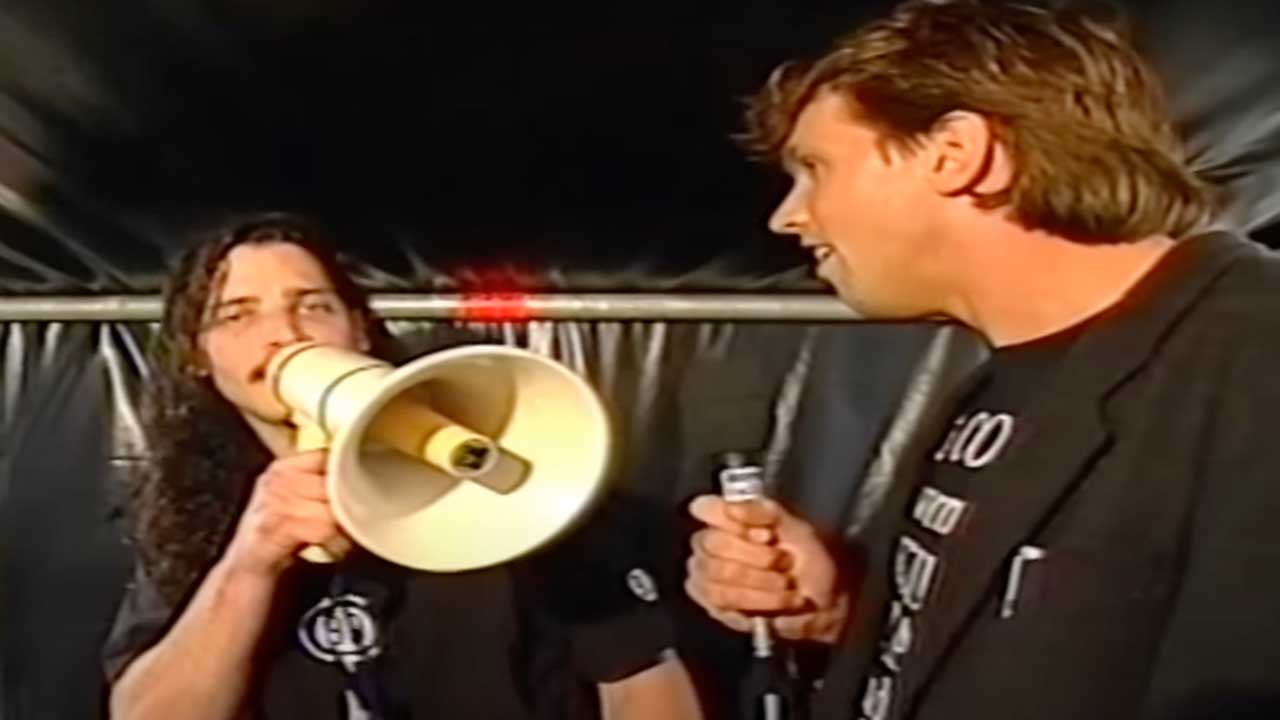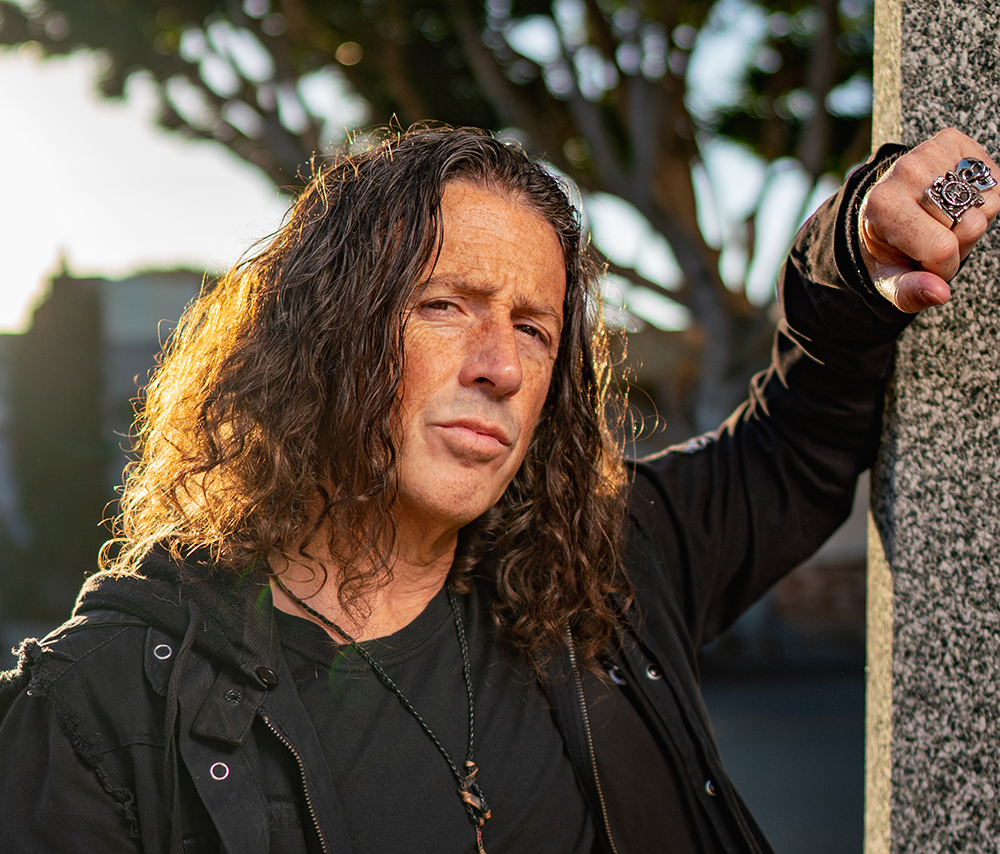On June 8, 1992, Soundgarden arrived in the Netherlands for the Pinkpop music festival, wholly unaware that they were soon to embark upon a series of progressively more difficult challenges that would end with frontman Chris Cornell pitted in a bizarre and deeply-unsettling standoff with a hostile adversary.
That adversary was certainly not the 60,000-strong legion of wild-eyed Dutch music fans amassed on the grounds that day. In fact, Soundgarden’s seismic fifteen-song set had emphatically confirmed what the world had only recently come to learn – that the four-piece (including guitarist Kim Thayil, drummer Matt Cameron and bassist Ben Shepherd), were very much the real deal – Led Zeppelin reincarnated as lithe, brooding malcontents from the rain-pummelled alleys of Seattle.
It was not even the dreadful weather – a steady barrage of lashing winds and rain with a symphony of natural pyrotechnics in the form of thunder and lightning. No, the final boss they would need to defeat that day was a toothy, leering pop journalist named Jan Douwe Kroeske.
The exchange plays out in all of its stomach-turning glory below. Lurking in a flappy, makeshift rain shelter on the side of the stage, Kroeske greets Cornell as he comes offstage immediately after Soundgarden’s set. Straight from the jump, the awkward metre spikes.
“Uh, Chris...” Kroeske begins.
“Hi,” interjects Chris.
“It’s kind of a wet set, isn’t it?”
“Yeah, it is.”
Kroeske’s English is fluent and easy but he struggles to find relevant topics for the interview. Only eight months prior, Soundgarden released Badmotorfinger to a feverish global reception.
Indeed, their fame trajectory had been nothing short of meteoric. Along with releases from Nirvana and Pearl Jam (the latter were headlining Pinkpop that day), the three Seattle-based bands had stormed the mainstream and burned their boats at the shore. The grunge revolution was peaking but rather than address any of that, Kroeske asks, “Does it make your set different when the audience is wet, when the weather is awful, when there’s thunder and lightning?”
Still acclimating to this new level of fame, Cornell comes across as down-to-earth and a bit playful – at least at this point. “I think the lighting was kind of cool,” he replies, “but other than that it was the same as a big normal rock show with the stage lights coming from God, I guess.”
Then it gets weird.
“So tell me Chris,” Kroeske asks, “the noise that you make – or is ‘noise’ the wrong word - the noise that you make does [it] fit to this weather?”
“Yeah, I think so,” Cornell says, “I think 'noise' is the perfect word.”
Steadfastly refusing to use the word “music” to describe Soundgarden’s music, Kroeske grows increasingly more cantankerous, at one point asking with earnest incredulity, “What is so attractive to making this sound?” When Cornell replies that it’s fun, Kroeske protests, “but it’s so loud!”
Like any final boss, Kroeske throws every absurdity he can muster at an unflappable Cornell. In a woeful attempt to coerce the singer into claiming Jimi Hendrix as an influence because the two share the same hometown, the journo challenges, “There’s not any relation between a kid from Seattle like you and a kid from Seattle like Jimi Hendrix?”
“Yeah, there is one,” says Cornell.
“Guitars!”
“No,” the singer deadpans.”His parents live in Seattle and so do mine. That’s it.”
There’s so much more in play, including Cornell’s arid-dry opinion on touring with Guns N' Roses and some icy, wordless staredowns that will leave viewers in slack-jawed awe that the interview ended without any violence. But the coup de grace happens after Cornell says goodbye and leaves. At 2:26, Kroeske turns to the camera and offers a short summary in Dutch, referring to the man that he just interviewed as “Chris Coleman, from Soundgarden.”

